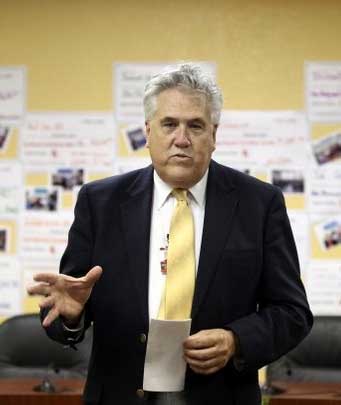It’s still driven by greed and pure self-interest. Ayn Rand rests easy in her grave.
In an effort to further Ayn Rand’s message critiquing altruism and promoting the virtue of selfishness, rejecting all moochers who would dare claim your money by tears, the producers of the third Atlas Shrugged movie have launched a Kickstarter campaign asking for donations, predicated on reminding supporters of the critics who have hurt it. As reported earlier this year, despite the free market repeatedly determining it would rather not have any Atlas Shrugged movies, producers Harmon Kaslow and John Aglialoro boldly refused to relinquish their rational self-interests to a world that would dare take their ideas from them, chiefly by not paying to see them. And because of their indefatigable commitment to film Atlas Shrugged: Who Is John Galt? by the fall—and thus propagate its titular character’s manifesto to “never live for the sake of another man, nor ask another man to live for mine”—Kaslow and Aglialoro have turned to asking other men to give them $250,000.



